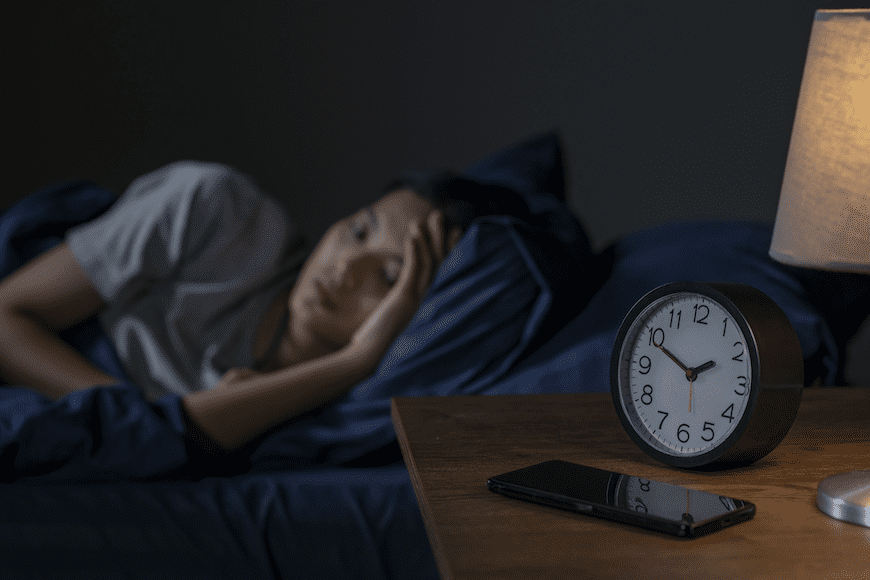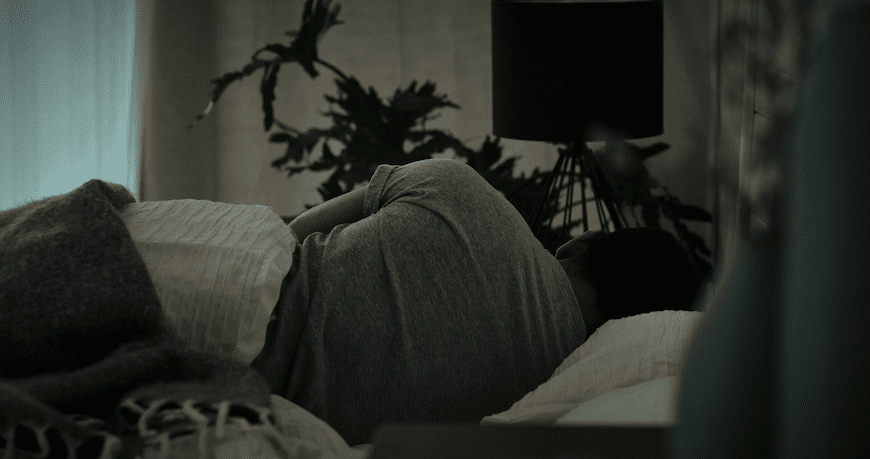And to think older generations only had to worry about bad eyesight brought on by reading in low light. Now, a new national study of U.S. adolescents has uncovered a startling link between bedtime screen use and adverse sleep outcomes.
The paper, which appears in the Journal of Adolescent Health, explores what bedtime electronic device use does to an adolescent’s sleep duration and quality. In short, does late-night doom scrolling induce nightmares in tweens?
The researchers observed a link between the presence of a TV or other Internet-connected device in the bedroom and shorter sleep duration after a year of study. Adolescents who kept their phone ringer on overnight slept less – and more fitfully – than those who turned off their phones.
The team even found that specific activities, such as talking or texting, listening to music, and using social media also prevented a full night’s sleep.
“Ensuring adolescents get enough sleep is vital, as it supports their physical and mental growth and development,” lead author Jason Nagata, MD, and associate professor of pediatrics at the University of California, San Francisco, said in a press release. “Our research found that leaving notifications on, even in silent mode, leads to less sleep compared to turning the phone off completely or keeping it outside the bedroom.”
Methodology
The study’s authors pored over data from more than 9,000 early adolescents – between 11 and 12 years old – who were part of the Adolescent Brain Cognitive Development (ABCD) Study.
The research team conducted regression analyses on prospective cohort data collected between 2018 and 2021. The scientists looked specifically at the relationship between self-reported bedtime screen use in the second year and sleep variables in the third year. Sleep variables included sleep duration and disturbances.
The researchers adjusted for sociodemographic factors and initial sleep variables to preserve the integrity of the study.
“Adolescent development is a challenging time for many given the social pressures and physical, psychological, and emotional changes that occur,” co-author, Kyle T. Ganson, PhD, and assistant professor at the University of Toronto’s Factor-Inwentash Faculty of Social Work, said. “Understanding this process and being present to support youth in their social media use is crucial.”
Pushing Back Against Screen Use
These findings implicate bedtime screen use as a threat to positive sleep outcomes in early adolescents. The study also supports the need for better guidance on bedtime screen behaviors to improve sleep health in this age group.
“Adolescents can be extremely sensitive to phone notifications, often waking up instantly when they hear their phone,” Nagata added. “Even if a phone is on silent or vibrate, adolescents may still check it overnight. Once they start reading or responding to messages, they can become more alert and activated.”
The results are noteworthy given how popular these devices are with adolescents. And this research only adds to the accumulating body of evidence by providing longitudinal data on the impact of bedtime screen use on sleep outcomes, highlighting the importance of targeting this behavior in interventions.
The study echoes the U.S. Surgeon General’s social media advisory form last year, which called for more research on social media and screen use and what it does to younger users.
Earlier studies have hinted at links between screen time and poor sleep outcomes, but most of those have been cross-sectional or looked at in wider age ranges or adult populations. What makes his study is notable for its large, demographically diverse sample and its focus on early adolescence, a critical developmental period for establishing healthy sleep habits.
How Does it Work?
The researchers suggested that a few factors might be at play when explaining why screen use disrupts sleep patterns. Some of their theories include:
- The most obvious is that screen use displaces time that would otherwise be spent sleeping.
- It also increases cognitive and physiological arousal.
- And, at the same time, it disrupts the formation of healthy bedtime routines.
Future research, the study’s authors added, could explore the specific contexts and contents of bedtime screen use to better understand their impacts on sleep.
Additionally, the researchers wondered if longitudinal studies following adolescents into later stages of development could provide more insights into the long-term effects of bedtime screen use on sleep health.
Further Reading
Evaluating the Psychiatric Effects of Social Media
Social Media Images Can Predict Suicide Risk
Emerging Research Reinforces Links Between Sleep and Suicide



